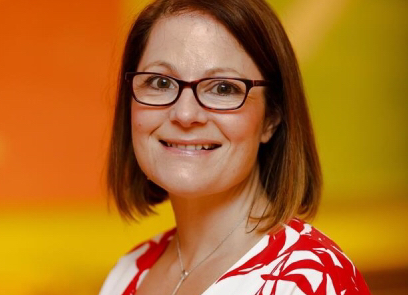Exercise is key to illness prevention and productivity improvement. But, for women, it won’t land without a rebrand, says Pippa Andrews, director of corporate business at Vitality
At a time when the UK government wants to Get Britain Working, including a new focus on prevention in the NHS 10-year Plan, we find that traditional one-size-fits-all fitness programmes simply don’t work for most women. They might want to get fit. But when the bulk of exercise marketing to women traditionally focuses on weight management, it can be as off-putting for some as it is motivating for others. And somewhere in-between, the mental health benefits – in terms of social connection, self-esteem and self-worth – become overlooked. Employers have a role to play in helping women get more active. But the branding needs a serious rethink.
Vitality polled around 6,000 women across the UK, including 1,000 women from each decade of life from the ages of 20–79.
The poll found that one in four women report not feeling physically healthy. Only 23 percent of women engage in 30 minutes of exercise or achieve 7,000 steps a day, five or more times a week – though 41 percent say they would like to reach this goal. 65 percent of women report not enjoying exercise.
The majority are unlikely to even make it off the blocks. The study found that weight management represents the dominant motivator for women to be physically active. Yet, at the same time, it can get in the way of physical exercise: preventing women even getting started, due to fear of judgement and body image.
This is no good for the health and happiness of the UK’s female population.
And it’s no good for business, consider that inactive employees lose 28 percent more productive time than those who regularly exercise, according to Vitality data.
Changing the rules of the game
Employers have a duty to foster a workplace culture that prioritises women’s wellbeing. That involves considering what women want and need; namely, less focus on weight management, more on lifestyle health benefits. Here are a couple of key areas for employers to focus on.
Targeting ages and stages
Our research shows that women need targeted interventions at different ages and life stages. For example, younger women report that time constraints and work schedules prevent them from being more active. For older women, lack of physical fitness and weight becomes a barrier.
After having a baby, women say their relationship with exercise changes, not least because of the responsibility involved. But also because of physical issues; 37 percent of women report that pelvic floor issues impacted their ability to exercise.
Meanwhile, 43 percent of women who are perimenopausal and 55 percent who are menopausal report having less energy than they used to.
In short, there’s a case for personalisation. We include ideas, by age group and life stage, in our report. For example, during perimenopause: free personalised fitness plans (as a foundation at every age and life stage); safe outdoor spaces; inclusive equipment; coaches who understand how to train women.
All this must be supported with clear information. Only 9 percent of women strongly agree that they feel informed about what exercise is beneficial for them at different life stages.
Healthy habits cut risks & costs
We found that 64 percent of women rely on walking for exercise. We know that walking has significant health and mortality benefits. It can be a powerful way to help inactive people build healthier habits. Data from the Vitality Habit Index shows that for inactive people, walking just 2,500 steps four times a week can reduce the risk of death for inactive people by up to 15 percent.
Of course, this should be the foundation for an active and healthy life, not the end goal. Upping that step count over time can make a big difference to health. For instance, 7,500 steps five times a week can reduce the risk of death by 27 percent.
In all cases, creating healthy habits can also reduce the risk of diseases like Cancer and Type 2 Diabetes, helping people live longer, in good health.
For employers, this obviously translates into a happier, healthier workforce, reduced absence, reduced health insurance costs and improved productivity. A true win-win.
But walking can be a solitary exercise. And, as mentioned earlier, women might be missing out on the social benefits. Group activities are vital for social skills, camaraderie, building networks and enhancing confidence and leadership abilities.
But across all age groups, our report shows that women tend to favour individual activities. Only 4 percent of women engage in team sports.
One way to overcome this, might be to lean into women’s affinity with walking, but set it up as a team-based step challenge, with the ability to track progress.
We recently launched such a facility as part of the Vitality member app. Challenges can be personalised in several ways to suit the employers’ aims, including women only and / or age and life stage specific. The key is: inclusive as opposed to intimidating; and fun rather than foreboding!












